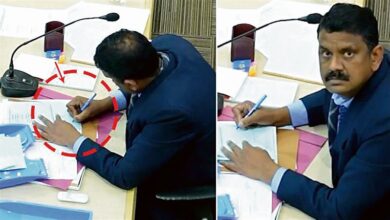Prominent campaigners who are incarcerated: Are they able to cast ballots?
Several prominent individuals have entered Delhi jails in recent times, such as BRS leader K Kavitha, Delhi Chief Minister Arvind Kejriwal, and his former deputy Manish Sisodia. All of them are being held by judges in relation to the purported excise policy fraud.

The chief minister is still incarcerated, but his party has designated him as their major spokesperson for the Lok Sabha elections. In addition to him, the list also includes Sisodia and former minister Satyendar Jain of Delhi, both of whom are detained in Tihar prison.
How are they going to campaign? Can the party vote, however, if only they know? Most likely not. Kejriwal would not be able to cast a ballot if he is kept in detention until May 26. On May 25, voting will take place in Delhi.
No individual may vote in any election if they are in jail, whether on a sentence, being transported, or for any other reason, or if they are in the legal custody of the police, according to Section 62(5) of the Representation of the People Act.
Voting-age inmates
In an interview with this publication, a top legal official at Delhi’s Tihar Jail said that just one of the four kinds of inmates housed there is eligible to vote.
“Only detainees have the ability to vote using ballot papers among convicts, undertrials, civils, and detainees,” the official said.
Undertrials are those who have been charged of a crime and are appearing in court, whereas convicted inmates have been found guilty of a crime.
One who is not a criminal prisoner is referred to as a “civil prisoner.” The officer said, “Basically, those who disobey orders—like not paying taxes, dues, or even power bills—are considered civil prisoners and are also unable to exercise their right to vote.
The only group eligible to vote are those detained under the Prevention Act. When questioned whether there were prisoners in the Tihar, the officer declined to provide the information.
Tihar, Rohini, and Mandoli are the three prison complexes in Delhi, and they are all made up of central prisons.
Residence Department
Notably, the Delhi government’s Home Department received a letter from the office of the Chief Electoral Officer of Delhi requesting a list of preventative prisoners who are now housed in different municipal jails and are qualified to vote.
“Yet, to date, we have not heard back in this regard,” an election official acknowledged to this publication.
According to the officer, voting papers are sent to the prison by letter from the local election office to the Home Department.
“The detainees can only cast their vote through a ballot paper,” the officer said. A ballot paper is a voting slip that is used for voting.
Official sources, however, claim that for unclear reasons, the Tihar prison management has not asked for a postal ballot from the local election office.
Voting by Tihar inmates
According to Sunil Gupta, a former PRO of Tihar Jail, they used to submit a request to the relevant Returning Officer, who would subsequently give voting papers.
“There used to be 5-7 such prisoners who voted through ballot papers when I was part of the jail administration,” Gupta said to this publication at the time. The former Tihar officer’s memory of the inmates’ opportunity to participate in the election process ends in 2014. Regarding whether or not they had stopped letting inmates cast ballots, the Tihar administration did not respond favorably.
Can run, but not cast a ballot
It’s interesting to note that while convicts are unable to vote, they are nonetheless able to run for office and join the legislature. Abdul Rashid Sheikh, also known as Engineer Rashid (56), who is now being held in Tihar prison on UAPA charges, will run for the Lok Sabha seat from J&K’s Baramulla constituency on an Awami Ittehad Party ticket in the current elections. Notably, Omar Abdullah, the former chief minister of J&K, is running on the National Conference (NC) ticket from the same seat.







